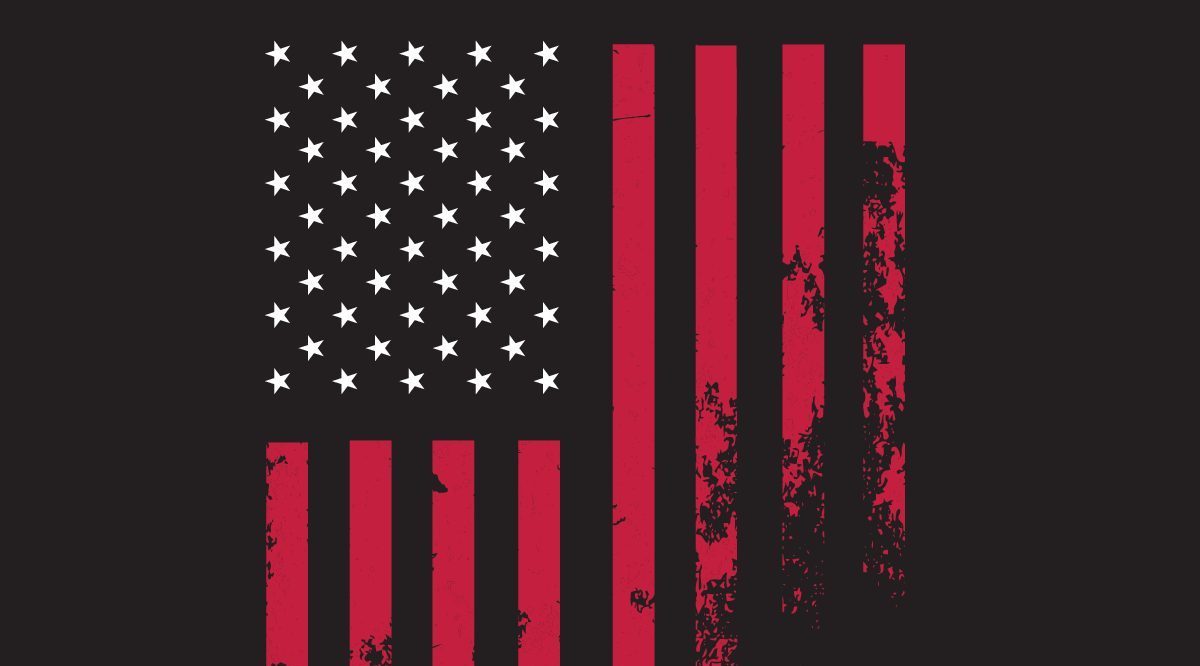“Life, liberty, and the pursuit of happiness.”
Few words inspire the American heart more than the rights listed in the opening to the Declaration of Independence. In the centuries since Jefferson penned that memorable phrase—in the aftermath of war and through the courage of men and women who longed for justice—the laws of the land that recognize these God-given rights now extend beyond white property-owning men to men and women of all races and classes. And even if, sadly, the right to life for unborn children remains unrecognized, and the reality of racial discrimination still haunts our justice system, the founders’ affirmation of Creator-endowed, government-recognized rights still resounds in the American heart.
Life, liberty, the pursuit of happiness. These words sum up the American Dream—that everyone should be free to benefit from equal opportunities and achieve their highest aspirations. Many of our society’s beloved books and movies champion this dream, telling stories of people rising above their station, overcoming incredible odds—self-made men and women who find happiness in moving from poverty to wealth, from obscurity to fame, or from vulnerability to power. The American Dream: the freedom to pursue happiness.
But what is happiness? What is liberty? In the previous two or three generations, these words have undergone a significant shift in meaning.
Happiness
When the founding fathers gathered around the table to etch their signatures onto the parchment of the Declaration, their understanding of “happiness” resembled the ancient meaning of the word passed down by the greatest of the Greek philosophers. “Happiness” referred to human flourishing, or achieving the “good life”—a life of goodness and wellbeing. Note the shades of morality included in that ancient definition. Happiness meant fulfilling one’s purpose or reaching the full potential of what a human being was created to be.
Since that time, the definition of “happiness” has shed most of its moral meaning and has slipped into the pursuit of personal pleasure. It may still be the “good life” we’re after, but it’s the good life as we define it, with ideals and goals welling up from inside of us, not coming down from above. The pursuit of happiness for many Americans today means the ability to determine our own destiny by living however we want.
Liberty
The meaning of “liberty” has shifted as well, often replaced today with a more individualistic notion of freedom. The old idea of freedom meant we were free to pursue our own wellbeing within the limits and constraints that make up the created order. The new idea of freedom means we must be empowered to do whatever we want or become whatever we desire.
American Dream—Inverted
The new definitions of “liberty” and “happiness” are turning the American Dream in on itself.
In the old way of thinking, the American Dream was about the freedom to make your way in the world, to pursue “the good life” without being hindered by too many governmental restrictions as you sought to become a whole and flourishing person who contributes to your community.
In the new way of thinking, the American Dream is about the freedom to buck the community’s consensus, to determine for yourself what “happiness” is, and then pursue personal freedom at all costs without submitting to any authority that might constrain your desires.
Wisdom and prudence, once hallmarks of virtue in a community where people sought to encounter the world as it is and then bring their lives into conformity with reality, fall away in light of all-consuming passion and desire. Boundaries are bad. Limits and norms inhibit our freedom, and a lack of freedom hinders our pursuit of happiness.
The American Dream has undergone a significant shift.
- The family is no longer the context in which we learn of freedom and happiness but a background from which to escape as we embark on our personal pursuit of pleasure.
- The church is no longer the community of faith that imparts moral instruction necessary for our transformation into virtuous citizens who model “the good life,” but a menacing fortress of outside authority meant to squelch our desires and destroy our dreams.
- The public square is no longer where we meet and, in good faith, debate our neighbors as we find ways to pursue the “common good” together, but a tension-filled place where we try to broker enough space to permit individuals to define for themselves what constitutes the “common good.”
- With the rise of new gender theories, even our bodies prove much too constraining for our self-expression and pursuit of happiness, leading to surgeries and mutilations in which we seek to bend physical reality to our increasingly arbitrary wills.
Loss of Freedom
A society built on the newer understandings of freedom and happiness cannot truly be free. In order to enforce the new view of freedom, the government must take on a larger and larger role as it tries to create and sustain new visions of reality, prop up falsehood in the name of equality, and then censor points of view that would call into question the legislative charade. A soft despotism descends upon the land. The “cancel culture” of judgment and denunciation arises in an attempt to maintain the façade of “inclusivity.” Viewpoint discrimination happens in the name of freedom, silencing in the name of speech, coercion in the name of compassion.
The new definitions of “liberty” and “happiness” are a metastasizing form of cancer that resists any notion of a transcendent purpose in life. Nearly all of the great debates in our society today can be traced back to our understanding of these terms.
- Are freedom and happiness found within the framework of the created order and human nature?
- Or are freedom and happiness found in escaping our creatureliness and in our rejection of physical and moral constraints?
- Is truth created or received?
- Is there a sacred order beneath our secular debates?
The future of the American Dream hinges upon our answers to these questions.
